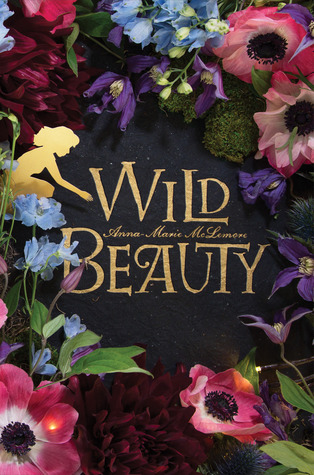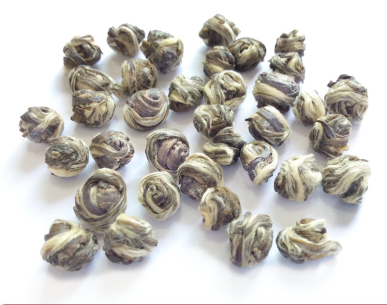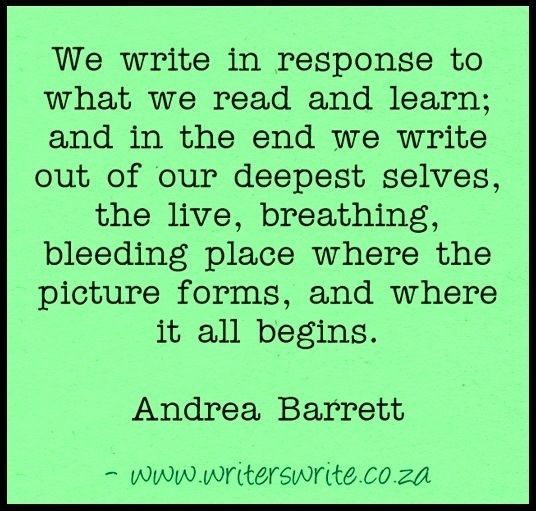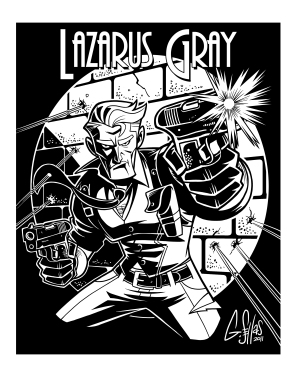When Svetlana Chmakova’s Awkward (which I wrote about here) was released in 2015, it renewed my love for comics for middle graders. And when I found about Brave, it went immediately on my mental TBR list. Brave is set in the same school, and we see a lot of the kids that were in Awkward, but it focuses on the Art Club’s Jensen.
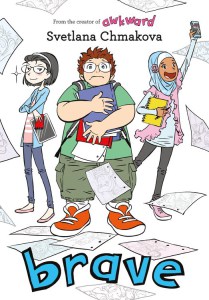 In Awkward, Jensen was seen as a very spacey kid who’s always lost in his own head. Brave starts out pretty much the same – Jensen imagines himself as a kind of superhero, always helpful and needed, and then reality crashes down on him and he’s just Jensen, who is doing badly in math because he never seems to focus. To make matters worse, his friends in Art Club aren’t acting like friends – their jokes about him are starting to seem mean and hurtful, and they seem to forget to include him in their conversations or activities. Jensen laughs this off and makes excuses for them, so they never seem to realise that he’s hurt by their actions.
In Awkward, Jensen was seen as a very spacey kid who’s always lost in his own head. Brave starts out pretty much the same – Jensen imagines himself as a kind of superhero, always helpful and needed, and then reality crashes down on him and he’s just Jensen, who is doing badly in math because he never seems to focus. To make matters worse, his friends in Art Club aren’t acting like friends – their jokes about him are starting to seem mean and hurtful, and they seem to forget to include him in their conversations or activities. Jensen laughs this off and makes excuses for them, so they never seem to realise that he’s hurt by their actions.
At the same time, Jensen is facing a problem with bullies. Still daydreaming through life, he sees school as a survival game – he has to keep getting to the next level until he’s allowed to leave. This means surviving classes and dodging bullies most of the time. Art Club used to be a reprieve from all of that, but lately even that doesn’t quite feel like it used to.
When Jenny and Akilah from the school paper draw Jensen in on their project about the causes and effects of bullying, Jensen finds a new sanctuary at school and slowly opens his eyes to how he’s being treated and how he could change things. The difficulty levels of navigating middle school are being cranked up, and Jensen will need to learn to be brave.
I really love that like Awkward, Brave does deal with misunderstandings and bullying, and I especially appreciate the fact that it shows how sometimes, it can come from the people we think of as friends. Not all of the Art Club kids were mean to Jensen – some of them were just too preoccupied with themselves to notice him – and not all the mean kids were doing it with the intention to hurt him. It doesn’t matter, in the end. When Jensen is told “real friends wouldn’t do that” (I’m paraphrasing here), his expression makes me want to jump into the book to hug him. He’s lucky to realise something this important in middle school. Even though it seems so basic, some of us won’t learn this lesson until much later in life.
My copy: received from my sister-in-law who accidentally ordered two. Thanks, Poh Ling!
Advertisements Share this: